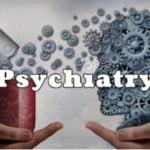I have been talking about dealing with the chronic stress of everyday life for some time now. Just because it is commonplace does not mean it is without consequence. In fact, your stress is constantly driving up your cortisol and your adrenaline. It leaves you fatigued and more prone to infections as it compromises your immune system. And even in its mildest form, it drains your joy and your energy.
Triggers can be contagious.
On top of this, I am hearing from many people that they are more easily triggered. The experience of triggering is that, when certain otherwise mild events occur, they trigger old emotions that have been stored and buried. These emotions rise to the surface and attach themselves to the new current situation. Triggering means that we lose the conscious connection to what matters in the present moment. We all know this sensation. We say and do things we wouldn’t normally. We act in hurtful ways that don’t feel like us. Afterwards, we say “this just wasn’t me.”
Often, we take these triggered emotions out on our kids or spouses and layer shame and blame onto them. Instead of handling the situation with appropriate calmness and containment, when we are triggered, we react and increase the drama and tension. Our kids then get wired to carry the same triggers or even traumas. In this way, triggers can be contagious.
So, how do we deal with triggering events?
 First, be aware of your state of mind and hold onto the feelings. Know that it won’t feel good. It is important to experience whatever feelings arise – anger, eruption, bitterness – feelings very distant from how we see ourselves. Allow yourself to fully feel it without judgement, guilt or self-blame. Own your feelings, knowing that you are solely responsible for them and the blame does not belong to anyone else. In fact, hold onto yourself with love and compassion because you are actively working hard on your emotional self.
First, be aware of your state of mind and hold onto the feelings. Know that it won’t feel good. It is important to experience whatever feelings arise – anger, eruption, bitterness – feelings very distant from how we see ourselves. Allow yourself to fully feel it without judgement, guilt or self-blame. Own your feelings, knowing that you are solely responsible for them and the blame does not belong to anyone else. In fact, hold onto yourself with love and compassion because you are actively working hard on your emotional self.
Second, pump the brakes! Work to contain the feelings and stop yourself from acting on them. Remind yourself that you and you alone are responsible for your actions.
Then, experience the feeling fully into your body. Locate it – know physically where it sits inside you. Begin to breathe through your nose slowly and deeply into the place where you feel the feeling the most. As you reach that place, picture a different reaction to the person who triggered you. Picture something happy, productive or healing.
When you fully feel your feelings and perform these steps, you’ll notice the feelings gradually evaporate.
You are a master - not a prisoner - of your emotions. When you suppress your emotions, you increase the tension, much like coiling like springs of your emotions. Suppressed feelings guarantee that the smallest disturbance will set them off in the future. Conversely, when you download your anger onto others, you only hurt and confuse the target of your actions, and create guilt and remorse that feed more tension back into the old feelings you’ve not yet dealt with.
The upshot? Feel it. Pump the brakes to prevent inappropriate action. Identify where it lives in your body and breathe into it to diffuse it. Take responsibility without trying to bury your feelings. You can take the control back, especially when you feel out of control. As always, send me your comments and let me know how you are doing. I am here for you.








